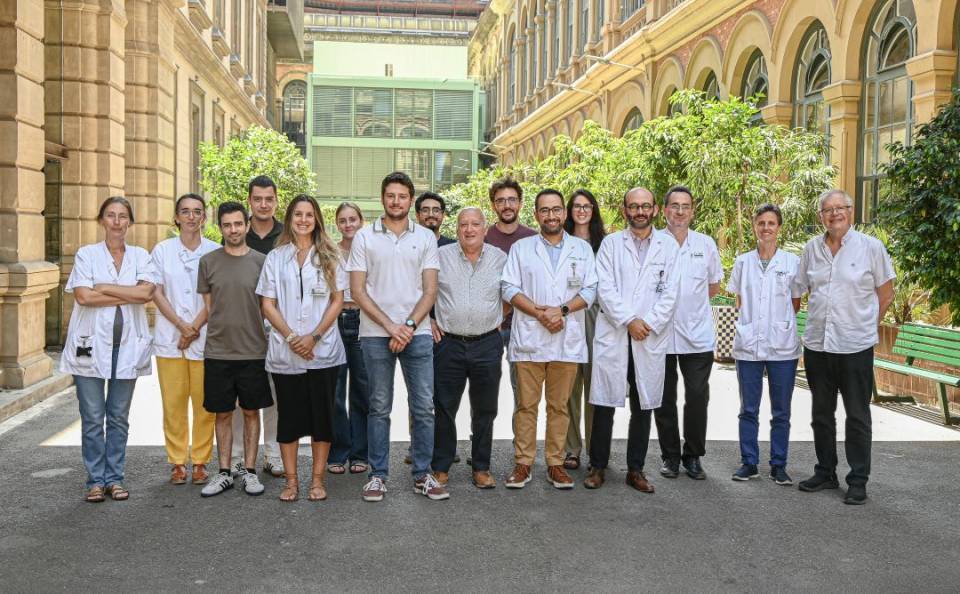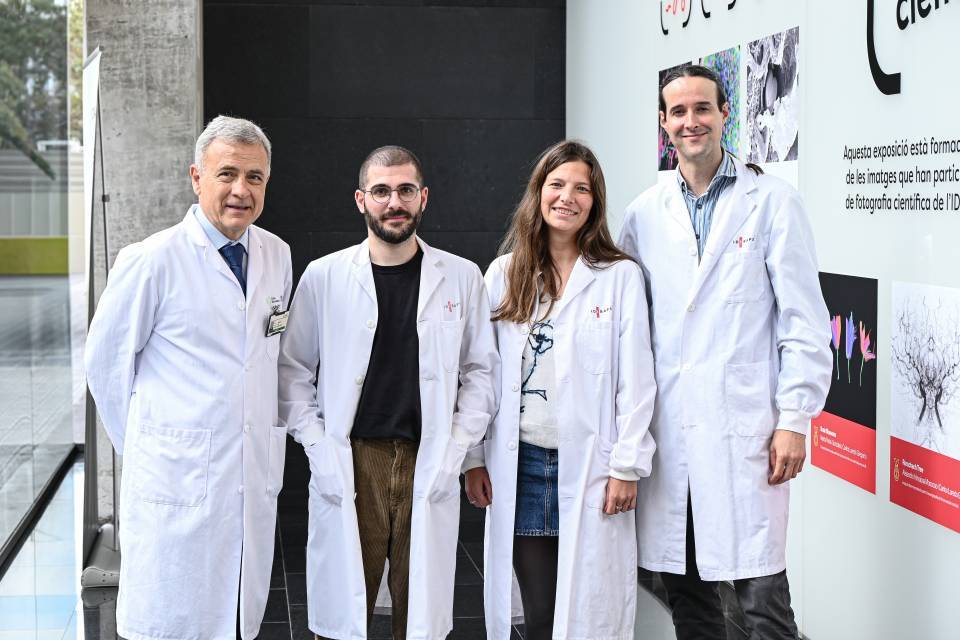The research, published in the journal Cancer Immunology Research, was coordinated by Dr. Carlos Fernández-Larrea, head of the Hematology Department at Hospital Clínic and head of the Multiple Myeloma, Amyloidosis, Macroglobulinemia and Other Gammapathies research group at IDIBAPS. The investigation had the support of the Spanish Association Against Cancer (AECC) and by a grant from the Bitrecs program for the incorporation of Clinician Scientists into IDIBAPS.
Multiple myeloma: what it is and the challenges it presents
Multiple myeloma is a blood cancer that affects the plasma cells in the bone marrow, responsible for producing antibodies. When these cells become malignant, they can cause bone damage, anemia, kidney failure, and infections. Despite advances, multiple myeloma often remains a chronic disease with a risk of relapse and drug resistance.
CAR-T therapy: personalization for treating multiple myeloma
CAR-T therapy involves genetically modifying the patient’s T cells to produce a receptor designed to identify and destroy cancer cells. This advanced immunotherapy is already offered at Clínic-IDIBAPS through CAR-T ARI0002h, designed to target a molecule called BCMA found on the surface of many myeloma tumor cells. However, tumors can develop resistance by losing this target.
New strategy: combining two targets to overcome resistance
The research describes the development of a CAR-T targeting the CD229 antigen, which has shown high efficacy in preclinical models both in vitro and in vivo, even against cells with low or no BCMA expression. This alternative target helps overcome one of the main current challenges of CAR-T therapy in multiple myeloma: relapses due to loss of antigen expression, either by reduction or total loss.
In addition, the team designed a CAR-T version combining two receptors in a single T cell: one targeting BCMA and the other targeting CD229, also present in myeloma cells. This dual strategy —known as “bicistronic CAR-T”— allows recognition and elimination of tumor cells expressing only one of the two targets, improving disease control and reducing the risk of relapse due to loss or reduction of one of the targets' expression.
Preclinical results show the new therapy effectively eliminates myeloma cells with variable BCMA and CD229 expression, providing more robust tumor control in vitro and in vivo.
According to Dr. Carlos Fernández de Larrea, the lead investigator: “This new CAR-T would represent a step forward in developing new CAR-T therapies for patients with multiple myeloma, especially those who have exhausted current options.”
This advance reinforces Clínic-IDIBAPS’s commitment to translational research and the drive to offer innovative alternatives for patients who present resistance to conventional treatments, aiming to improve quality of life and prognosis for people with multiple myeloma.
Study reference:
Rodríguez-Lobato LG, Cardus O, Mañé Pujol J, Battram AM, Vaqué-Salsench S, Carpio J, Pérez-Amill L, Calderón H, Martin-Antonio B, Oliver-Caldés A, Lozano E, Moreno DF, Ortiz-Maldonado V, Queralt Salas M, de Daniel A, Tovar N, Cibeira MT, Rosinol L, Bladé J, Juan M, Urbano-Ispizua Á, Engel P, Fernández de Larrea C. Bicistronic CAR-T Cell against BCMA and CD229 effectively controls myeloma even when BCMA expression is limited. Cancer Immunol Res. 2025 Jun 27. doi: 10.1158/2326-6066.CIR-24-1313.




